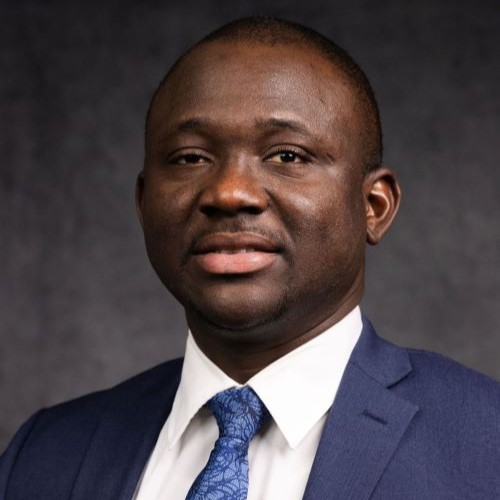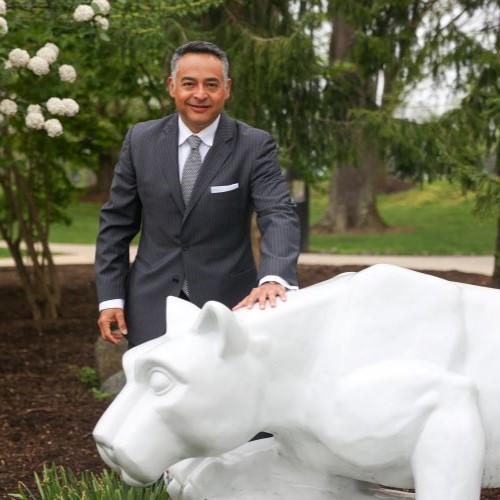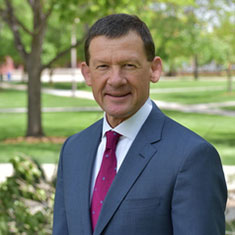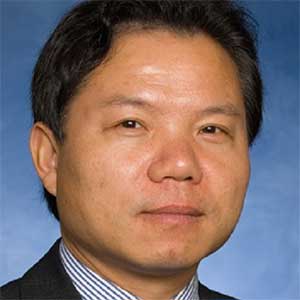Affiliates

Sanaz Motamedi
- Assistant Research Professor
- CSRAI Affiliate
Department/Unit: College of Engineering
Email: sjm7946@psu.edu
Research Interests: Dr. Motamedi’s research lies at the intersection of artificial intelligence, human-systems engineering, and human–automation interaction. She focuses on developing AI-driven tools that support decision-making, enhance training, and improve performance in safety-critical domains such as healthcare, transportation, and education. Her work integrates machine learning, human-centered design, and behavioral modeling to better understand and support how people interact with complex systems. She is particularly interested in real-time feedback systems, gaze-based attention modeling, and the ethical deployment of AI in environments where human well-being and trust are paramount.

Rebecca Napolitano
- Assistant Professor
- CSRAI Affiliate
Department/Unit: College of Engineering
Email: nap@psu.edu
Research Interests: Resilience of the built environment; adaptive reuse for sustainable, affordable housing; cultural heritage buildings; UAV monitoring of buildings; sustainable materials development

David Norloff
- Associate Teaching Professor
- CSRAI Affiliate
Department/Unit: Bellisario College of Communications
Email: dcn101@psu.edu
Research Interests: The intersection of Autonomous Vehicles, Artificial Intelligence, Wireless Networks, and Wearable Devices.

Mary Beth Oliver
- Donald P. Bellisario Professor of Media Studies
- CSRAI Affiliate
Department/Unit: Bellisario College of Communications
Email: mbo1@psu.edu
Research Interests: I am interested in the ways that media can enhance well-being and social good.

Ibukun Osunbunmi
- Assistant Research Professor
- CSRAI Affiliate
Department/Unit: College of Engineering
Email: iso5023@psu.edu
Research Interests: Artificial intelligence and machine learning in engineering education, AI-enhanced pedagogy and assessment, virtual reality-enhanced learning, broadening participation in engineering education, student engagement and retention

Holly Overton
- Associate Professor
- CSRAI Affiliate
Department/Unit: Bellisario College of Communications
Email: hko104@psu.edu
Research Interests: Dr. Overton conducts public relations research in the areas of corporate social responsibility communication and corporate social advocacy. Her research also focuses on examining psychological factors that impact information processing and engagement among publics, nonprofit public relations, and the persuasive impact of messages and technological factors in public relations contexts.

Bing Pan
- Professor of Commercial Recreation and Tourism
- CSRAI Affiliate
Department/Unit: College of Health and Human Development
Email: bup63@psu.edu
Research Interests: My research interests include big data and data analytics in tourism and parks, including using machine learning and artificial intelligence to monitor, predict, and nudge visitor behavior.

Herschel Pangborn
- Assistant Professor
- CSRAI Affiliate
Department/Unit: College of Engineering
Email: hxp5027@psu.edu
Research Interests: My research lab focuses on the dynamic modeling, design, and control of energy systems, including aircraft, cars, and buildings. A particular focus is predictive hierarchical control frameworks that coordinate decision-making across multiple systems, timescales, and energy domains. Our goal is to develop and apply mathematical techniques for assuring safe and efficient autonomy in complex energy systems.

Semin Park
- Assistant Professor
- CSRAI Affiliate
Department/Unit: Smeal College of Business
Email: svp6397@psu.edu
Research Interests: My research examines how teams adapt, coordinate, and make sense of change, particularly when new technologies or shifting memberships disrupt established ways of working. I study the dynamic processes through which team members interpret one another’s expertise, contributions, and credibility over time. With CSRAI, I explore how the integration of generative AI into collaborative work reshapes team dynamics: how people utilize or conceal AI assistance, how such behaviors influence emerging power and status structures, and what this means for trust, fairness, and performance in hybrid human–AI teams.

Becky Passonneau
- Professor
- CSRAI Affiliate
Department/Unit: College of Engineering
Email: rjp49@psu.edu
Research Interests: My area of research is natural language processing, with a focus on computational pragmatics. I investigate how the same combinations of words have different meanings in different contexts, in spoken or written language.

Vincent Perez
- Lecturer
- CSRAI Affiliate
Department/Unit: Penn State Brandywine
Email: vkp5236@psu.edu
Research Interests: Competitive and disruptive strategies, including the effective utilization of AI, and have a deep commitment to social entrepreneurship and supporting non-profit organizations.

Patrick Plaisance
- Don W. Davis Professor in Ethics
- CSRAI Affiliate
Department/Unit: Bellisario College of Communications
Email: plp22@psu.edu
Research Interests: Current research focuses on moral psychology in media practice & professional culture; moral ecology of digital media organizations; ethical implications of media technologies embedded in digital media cultures (algorithmic uses, social media platform affordances, etc.), to culminate in planned book project on philosophy of technology critiques of digital media. Theorizing also focuses on critiquing media technology implications with a virtue ethics framework with the aim of identifying, as Shannon Vallor says, a 'technological future worth wanting.'

Robin Qiu
- Professor of Information Science
- CSRAI Affiliate
Department/Unit: Penn State Great Valley
Email: robinqiu@psu.edu
Research Interests: Big Data, Data/Business Analytics, Smart Service Systems, Service Science, Social Computing, Service Operations and Management, Information Systems, and Manufacturing and Supply Chain Management

Natalie Rae
- Assistant Professor of Learning, Design, and Technology
- CSRAI Affiliate
Department/Unit: College of Education
Email: nad5726@psu.edu
Research Interests: Natalie Rae (she/her), an Assistant Professor of Learning, Design, and Technology at Penn State University, sees science and technology learning as deeply embedded in social, historical, and cultural webs. One vein of her current research examines how people make sense of AI technologies: from understanding how students develop ethical stances towards AI use in higher education settings, to how Pennsylvania residents navigate the development of AI-infrastructures - namely data centers - in their communities.

Ihab Ragai
- Professor of Engineering and Professor of Mechanical Engineering
- CSRAI Affiliate
Department/Unit: Penn State Behrend
Email: ifr1@psu.edu
Research Interests: Advanced Manufacturing Processes, Smart Manufacturing Systems
